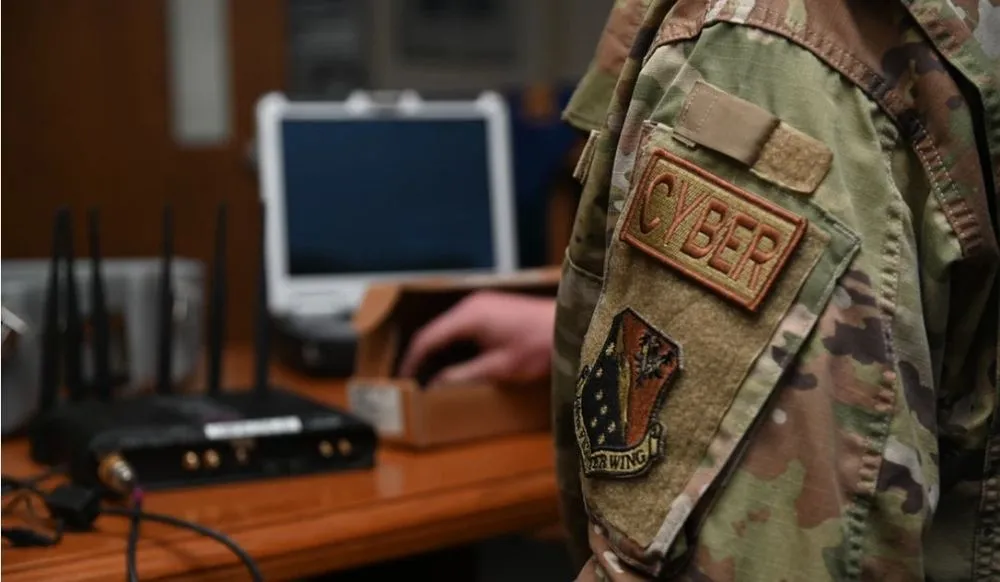What would you do in the event of a cyberattack on your city?
Minnesota’s Cybersecurity Crisis
In July 2025, Minnesota faced an alarming event that highlighted the vulnerabilities of even the most established government systems: a significant cyberattack targeting the capital city, St. Paul. This incident was severe enough to prompt Governor Tim Walz to activate the Minnesota National Guard’s cyber forces. Understanding the implications of this cybersecurity breach can help you appreciate the importance of digital safety in today’s interconnected world.

This image is property of cms.recordedfuture.com.
The Cyberattack on St. Paul
On a seemingly ordinary Friday, the governmental networks of St. Paul were compromised by a forceful cyberattack. As more details unfolded, it became evident that the attack targeted critical systems designed to manage city operations. In a fast-paced environment where digital infrastructure is vital, such breaches become more than just a hassle; they threaten the stability of emergency services and essential civic functions.
Key Takeaways:
- St. Paul had to halt government network operations due to the breach.
- This incident is among the most extensive cyberattacks experienced by a U.S. city in 2025.
- The active engagement of state leadership demonstrates the seriousness of cybercrime.
Governor Walz’s Response
Upon activation of the National Guard, Governor Walz made it clear that protecting the citizens of St. Paul was the utmost priority. He emphasized the need for collaboration among state, local, and federal entities to restore cybersecurity protocols swiftly.
Quote from Governor Walz:
“We are committed to working alongside the City of Saint Paul to restore cybersecurity as quickly as possible.”
This coordination is crucial in marshaling resources and expertise to address the immediate threats and work towards long-term security solutions.

This image is property of cms.therecord.media.
The Impact on Municipal Services
As the city scrambled to respond, officials took decisive measures to shut down networks as a defensive maneuver against further infiltration. Mayor Melvin Carter expressed focused concerns regarding the data held by the city, particularly information about government employees, reflecting the emphasis on safeguarding sensitive data even amidst a broad operational halt.
Immediate Actions Taken:
- The city’s Wi-Fi was shut down across all buildings, including libraries and recreation centers.
- Online payment platforms were disabled to mitigate risks, signaling a commitment to preserving public safety and information integrity.
- Essential services like 911 remained operational despite online service disruptions.
Recovery Efforts Initiated
The cyberattack not only demanded immediate responses but also ongoing recovery efforts. The collaboration between city officials and external cybersecurity vendors formed the backbone of the recovery plans, illustrating the need for specialized expertise in dealing with complex cyber threats.
As outlined by Governor Walz, this entire episode was coupled with relentless efforts to understand and analyze the breach from multiple angles.

This image is property of cms.recordedfuture.com.
Understanding the Attack’s Nature
The nature of the cyberattack has not been seamlessly classified. However, it was made clear by Mayor Carter that this was no technical glitch. Instead, a more sinister, coordinated attack unfolded that aimed at destabilizing key information infrastructures.
Informed Remarks:
“This was not a system glitch or technical error. This was a deliberate, coordinated digital attack.”
Learning about the nature of the attack helps in comprehending how it affects not just immediate operations, but also the long-term security propositions for municipal systems.
Further Implications for Cybersecurity
The St. Paul incident is a reminder that cyberattacks can have widespread repercussions not only for city governance but also for the everyday life of citizens. The focus remains on impacting critical infrastructure, which showcases how vulnerable essential services can be when faced with external threats.

This image is property of cms.recordedfuture.com.
Learning from Minneapolis’s Experience
Interestingly, this event follows another significant ransomware attack that occurred in the sister city of Minneapolis, where systems operating city parks were compromised earlier. Such incidents draw attention to broader trends in urban cybersecurity vulnerabilities across the nation, emphasizing that municipalities must take proactive steps to mitigate risks.
The Broader Context of Cybercrime
In recent years, the landscape of cybercrime has become increasingly complex and alarming. With national and state-level implications, awareness of these threats must be heightened among both the public and government officials. As sophisticated cybercriminals target cities that may not be prepared, measures should be taken to strengthen defenses against potential attacks.
Notable Statistics
| Year | Incident Type | Location | Outcome |
|---|---|---|---|
| 2025 | Major Cyberattack | St. Paul, MN | Government network shutdown |
| 2025 | Ransomware Attack | Minneapolis, MN | Systems compromised at city park agency |
| 2025 | Cyber Incident | Minnesota | Activation of National Guard cyber teams |

This image is property of cms.recordedfuture.com.
The Role of the National Guard
The involvement of the National Guard reflects a growing recognition of the need for specialized skills in mitigating cyber threats. Cybersecurity teams within the Guard train to address such situations, showcasing how military resources are evolving to meet contemporary threats.
Roles of the National Guard Cyber Forces:
- Assess attack dynamics.
- Collaborate with various government entities for a unified response.
- Enhance local incident response strategies based on experience and training.
Heightened Awareness and Preparedness
As a citizen of Minnesota or anywhere else, understanding how these threats impact your local community is crucial. Awareness of cyber risks can lead to a more informed public that contributes to strengthening defenses.
Tips for Enhancing Cybersecurity Awareness:
- Engage in community discussions around cybersecurity preparedness.
- Stay updated on local government notifications regarding security threats.
- Practice basic cybersecurity measures in personal and community networks.
Conclusion
The cyberattack on St. Paul is a wake-up call for many. It emphasizes why investing in cybersecurity at municipal, state, and personal levels is vital for safeguarding community welfare. Each city is likely to face its own unique challenges in this digital age, but with proper resources and proactive measures, resilience against cybercrime becomes achievable.
As we navigate through a time of escalating digital threats, being informed and prepared can contribute significantly towards creating a safer environment for everyone. Hence, it’s essential to not just observe these developments but to actively engage in the conversation and actions that ensure your community is protected.
Reflect on these events and consider how you, too, can play a role in fostering a safer digital landscape in your area. Your involvement could make a difference in securing not just your home but an entire community.